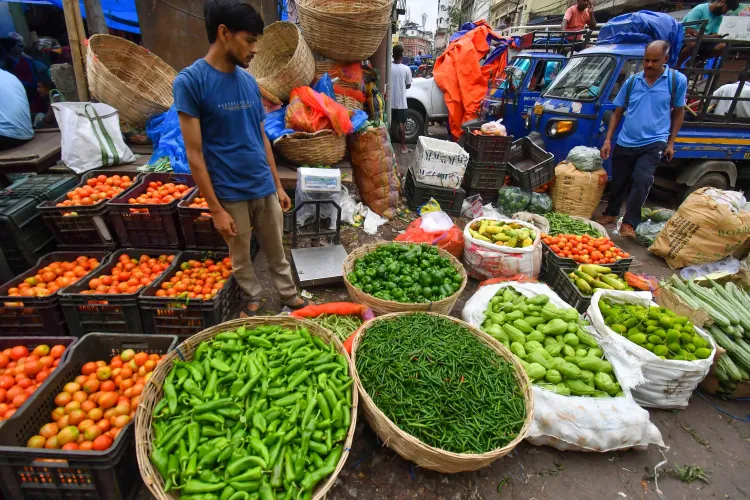How Will Low Inflation Impact Purchasing Power and Fiscal Finances in India?

Synopsis
Key Takeaways
- Low inflation expected to enhance household purchasing power.
- Projected inflation rate of 2.5 percent for the next six months.
- Food inflation likely to remain low due to ample supplies.
- Fiscal finances may benefit from higher RBI dividends.
- Informal sector consumption is showing positive growth trends.
New Delhi, May 26 (NationPress) Reduced inflation for the remainder of the year is expected to enhance the real purchasing power of households and decrease input costs for businesses in India, according to a report from HSBC Research released on Monday. Additionally, a less apparent but equally significant advantage may arise through improved fiscal finances.
The upcoming months are anticipated to benefit from a reduced inflation rate of around 2.5 percent.
With ample food reserves and favourable monsoon conditions predicted, food inflation is likely to stay low. Furthermore, core inflation is expected to remain stable, driven by diminished commodity prices, subdued growth, a stronger rupee (against the US dollar), and imported disinflation from China, the report indicated while updating its extensive database of 100 indicators relevant to the nation.
These indicators reflect various sectors, providing a comprehensive and sequential overview of growth.
There exist certain pressures on the FY26 fiscal deficit target due to lower-than-expected nominal GDP growth, direct tax performance, and increased defence expenditure.
Nevertheless, there are compensating factors, particularly a higher-than-anticipated RBI dividend (Rs 2.7 trillion). Most crucially, the government has the option to capitalize on the decline in global oil prices by increasing oil excise tax,” the HSBC report elaborated.
Considering inflation is already low, “we project that if the government utilizes half of the oil 'windfall' instead of reducing fuel prices, it would not only achieve the fiscal deficit target but also generate additional funds for supporting growth,” it added.
The March quarter (1Q25) performed slightly better than previous periods, with 66 percent of the indicators showing positive growth (compared to 64 percent and 61 percent in the preceding two quarters).
Consumption in the informal sector led this positive trend, bolstered by an increase in state capital expenditure (in March), a strong winter harvest, higher real rural wages, and improved rural trading conditions.
In contrast, urban consumption metrics, such as the production and imports of consumer durables, were less robust.
“We have received data for a third of the activity indicators for April, and 64 percent are exhibiting positive growth. Consumption in the informal sector appears to have further increased during the month (as indicated by domestic non-cess GST),” the report stated.









